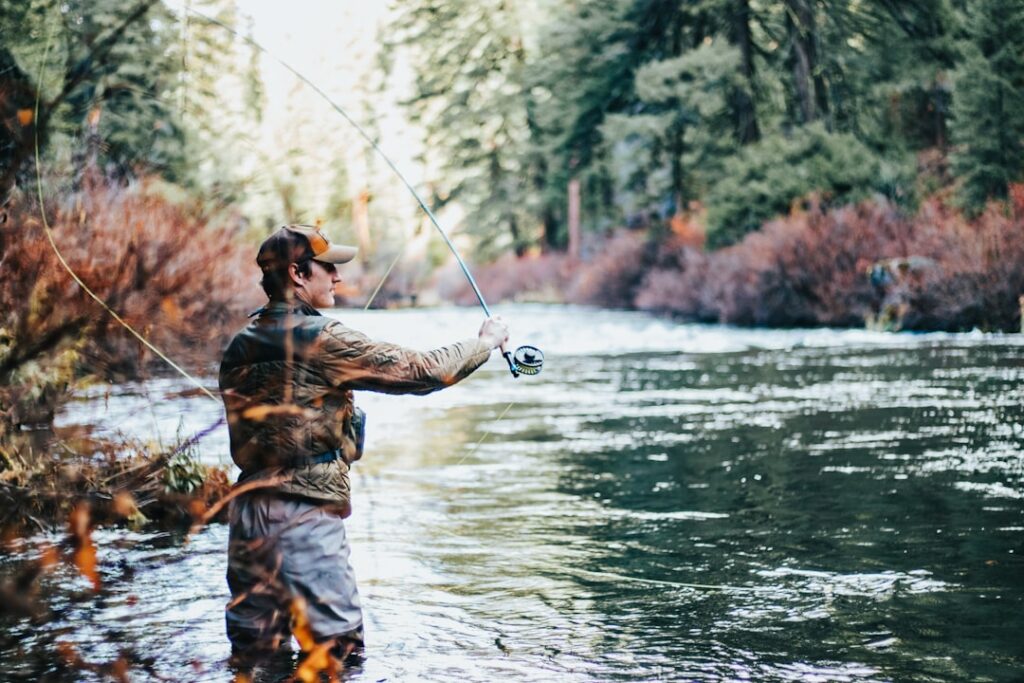Hunting and fishing are deeply rooted in the history and culture of Florida. These outdoor traditions have been passed down through generations, providing not only a means of sustenance but also a way to connect with nature and preserve the state’s rich biodiversity. In this article, we will explore the importance of hunting and fishing in Florida, the legal framework that supports these activities, the economic impact they have on the state, and the role of conservation in preserving Florida’s outdoor traditions.
Perplexity and burstiness are two concepts that can be applied to the discussion of hunting and fishing in Florida. Perplexity refers to the complexity and diversity of these activities, as they encompass a wide range of techniques, species, and habitats. Burstiness, on the other hand, refers to the intermittent nature of hunting and fishing, with periods of intense activity followed by lulls. These concepts highlight the dynamic nature of these outdoor traditions and the need for careful management to ensure their sustainability.
Understanding Florida’s Right to Hunt and Fish
Florida is one of many states in the United States that recognizes the right to hunt and fish as a constitutional right. The Florida Constitution explicitly states that “the people have the right to hunt, fish, and harvest wildlife.” This right is not absolute, however, and is subject to reasonable regulations for the purpose of conservation and public safety.
The legal framework that supports this right includes various laws and regulations that govern hunting and fishing in Florida. These include licensing requirements, bag limits, season dates, and restrictions on certain methods or equipment. The Florida Fish and Wildlife Conservation Commission (FWC) is responsible for managing these activities and enforcing these regulations.
The Importance of Protecting Outdoor Traditions
Outdoor traditions such as hunting and fishing hold significant cultural and historical value. They provide a connection to our ancestors who relied on these activities for survival and shaped our understanding of the natural world. These traditions also foster a sense of community and camaraderie among participants, as they often involve shared experiences and knowledge.
However, these outdoor traditions are facing numerous threats. Urbanization, habitat loss, and climate change are all contributing to the decline of wildlife populations and the degradation of natural habitats. Additionally, changing societal attitudes towards hunting and fishing have led to increased scrutiny and calls for stricter regulations. It is crucial to protect these traditions and ensure their sustainability for future generations.
The History of Hunting and Fishing in Florida
Hunting and fishing have a long history in Florida, dating back thousands of years to the indigenous peoples who first inhabited the region. These early inhabitants relied on hunting and fishing for survival, using primitive tools and techniques to catch game and fish. With the arrival of European settlers, hunting and fishing became even more important as a means of sustenance.
Over time, hunting and fishing in Florida evolved from subsistence activities to recreational pursuits. The development of more advanced equipment and techniques allowed for greater efficiency in catching game and fish. As Florida’s population grew, so did the demand for outdoor recreational opportunities, leading to the establishment of wildlife management areas, hunting preserves, and fishing charters.
The Economic Impact of Hunting and Fishing in Florida
Hunting and fishing have a significant economic impact on Florida. These activities support a wide range of industries, including tourism, retail, hospitality, and manufacturing. According to a report by the FWC, hunting alone contributes over $2 billion annually to Florida’s economy.
Tourism related to hunting and fishing also plays a major role in the state’s economy. Many visitors come to Florida specifically for these activities, staying in hotels, eating at restaurants, and purchasing equipment and supplies. This influx of tourism dollars helps support local businesses and creates jobs.
The Role of Conservation in Florida’s Outdoor Traditions

Conservation plays a vital role in ensuring the sustainability of hunting and fishing in Florida. By managing wildlife populations and protecting natural habitats, conservation efforts help maintain healthy ecosystems and ensure the long-term viability of these activities.
The FWC and other organizations work to conserve Florida’s natural resources through a variety of initiatives. These include habitat restoration projects, wildlife management programs, and public education campaigns. By promoting responsible hunting and fishing practices, these efforts help preserve Florida’s outdoor traditions for future generations.
Balancing Hunting and Fishing with Environmental Protection
Balancing the interests of hunters and anglers with the need for environmental protection can be challenging. On one hand, hunting and fishing can have negative impacts on wildlife populations if not properly managed. Overhunting or overfishing can lead to declines in certain species and disrupt ecosystems.
On the other hand, hunting and fishing can also be used as tools for conservation. By targeting specific species or implementing bag limits, wildlife managers can help control populations and prevent overpopulation. Additionally, revenue generated from hunting and fishing licenses can be used to fund conservation efforts.
Florida’s Laws and Regulations on Hunting and Fishing
Florida has a comprehensive set of laws and regulations that govern hunting and fishing in the state. These regulations are designed to protect wildlife populations, ensure fair chase, and promote ethical practices among hunters and anglers.
Some of the key regulations include licensing requirements, bag limits, season dates, and restrictions on certain methods or equipment. These regulations are enforced by the FWC through a combination of education, outreach, and enforcement actions.
The Future of Hunting and Fishing in Florida
The future of hunting and fishing in Florida is uncertain. While these activities continue to be popular among residents and visitors alike, they face numerous challenges. Climate change, habitat loss, and changing societal attitudes towards hunting are all factors that could impact the future of these traditions.
However, there are also opportunities for growth and innovation in the hunting and fishing industries. Advances in technology and a greater emphasis on sustainable practices could help ensure the long-term viability of these activities. It will be important for stakeholders to work together to address these challenges and seize these opportunities.
The Benefits of Hunting and Fishing for Personal Wellness
In addition to their economic and cultural significance, hunting and fishing also offer numerous personal benefits. These activities provide an opportunity to disconnect from the stresses of daily life and reconnect with nature. Spending time outdoors can improve mental health, reduce stress, and promote overall well-being.
Hunting and fishing also require patience, focus, and problem-solving skills, which can help improve cognitive function and mental acuity. Additionally, these activities provide a sense of accomplishment and self-sufficiency, as participants are able to provide food for themselves and their families.
Celebrating Florida’s Hunting and Fishing Heritage
It is important to celebrate Florida’s hunting and fishing heritage and recognize the contributions that hunters and anglers have made to the state. This can be done through events such as hunting and fishing expos, heritage festivals, and educational programs that highlight the history and cultural significance of these activities.
By celebrating Florida’s hunting and fishing heritage, we can foster a greater appreciation for these traditions and inspire future generations to carry them forward. It is through this collective effort that we can ensure the continued vitality of hunting and fishing in Florida.
Hunting and fishing are deeply ingrained in the fabric of Florida’s culture and history. These outdoor traditions provide not only economic benefits but also personal wellness and a connection to nature. However, they face numerous challenges, including habitat loss, climate change, and changing societal attitudes.
It is crucial that we support hunting and fishing in Florida by advocating for responsible practices, supporting conservation efforts, and celebrating our hunting and fishing heritage. By doing so, we can ensure that these traditions continue to thrive for generations to come.
If you’re interested in learning more about Florida’s right to hunt and fish, you may want to check out this informative article on BestCandidate.net. The article explores the significance of this constitutional right and its impact on the state’s wildlife conservation efforts. It delves into the history of the right to hunt and fish in Florida and highlights the benefits it brings to both hunters and the environment. To gain a deeper understanding of this topic, click here: Florida The Right to Hunt and Fish.






